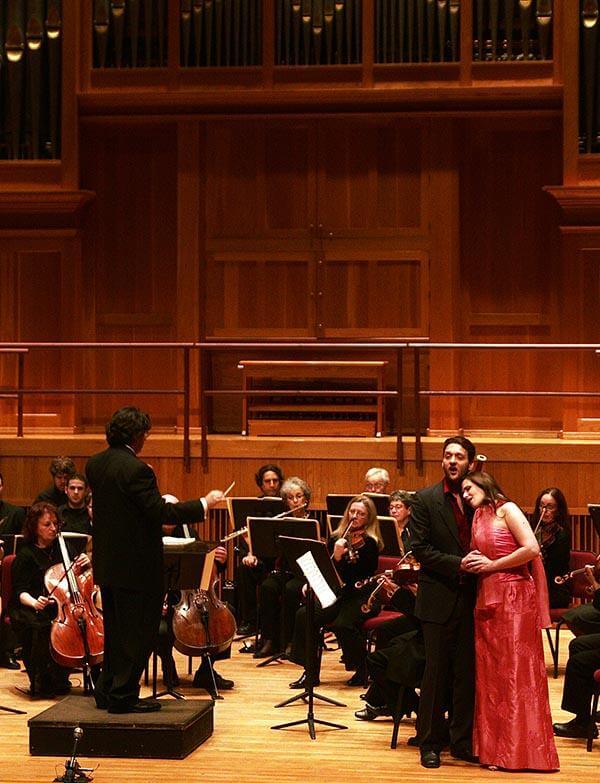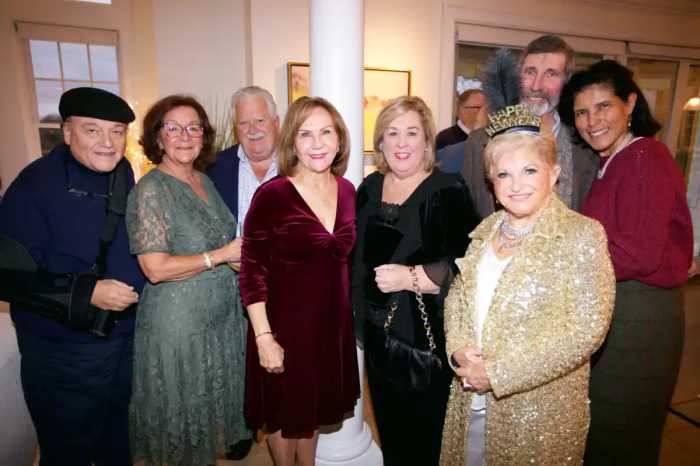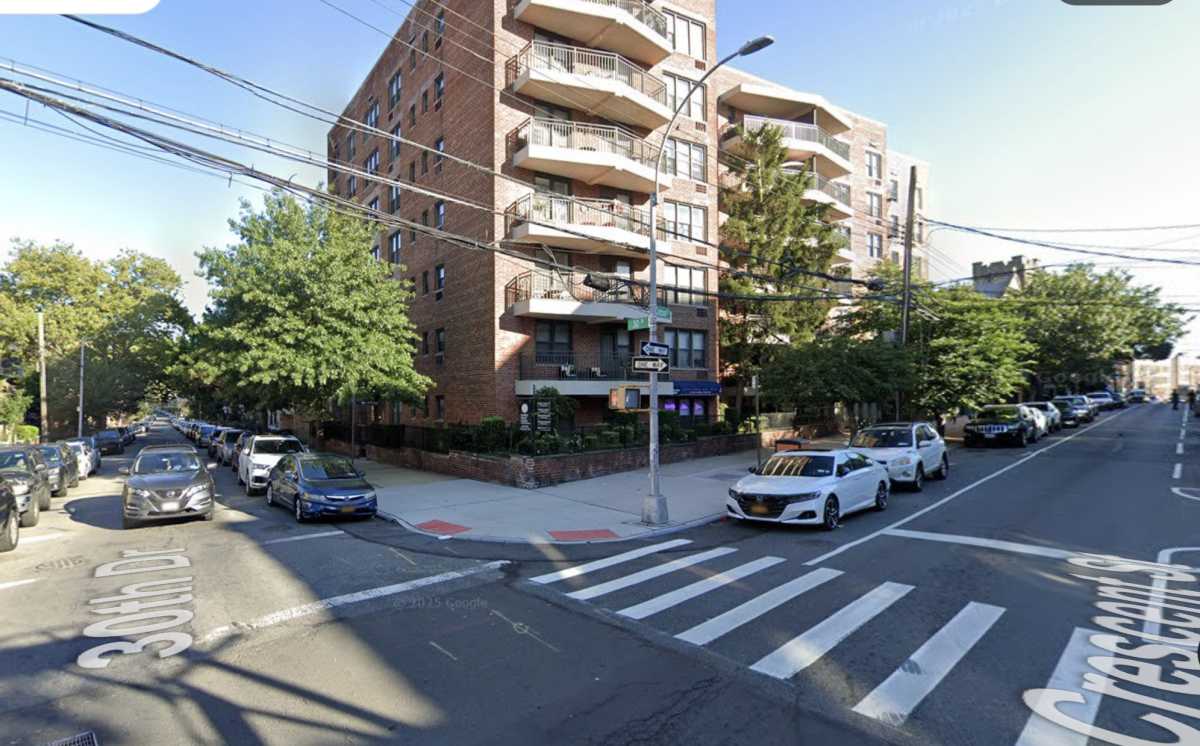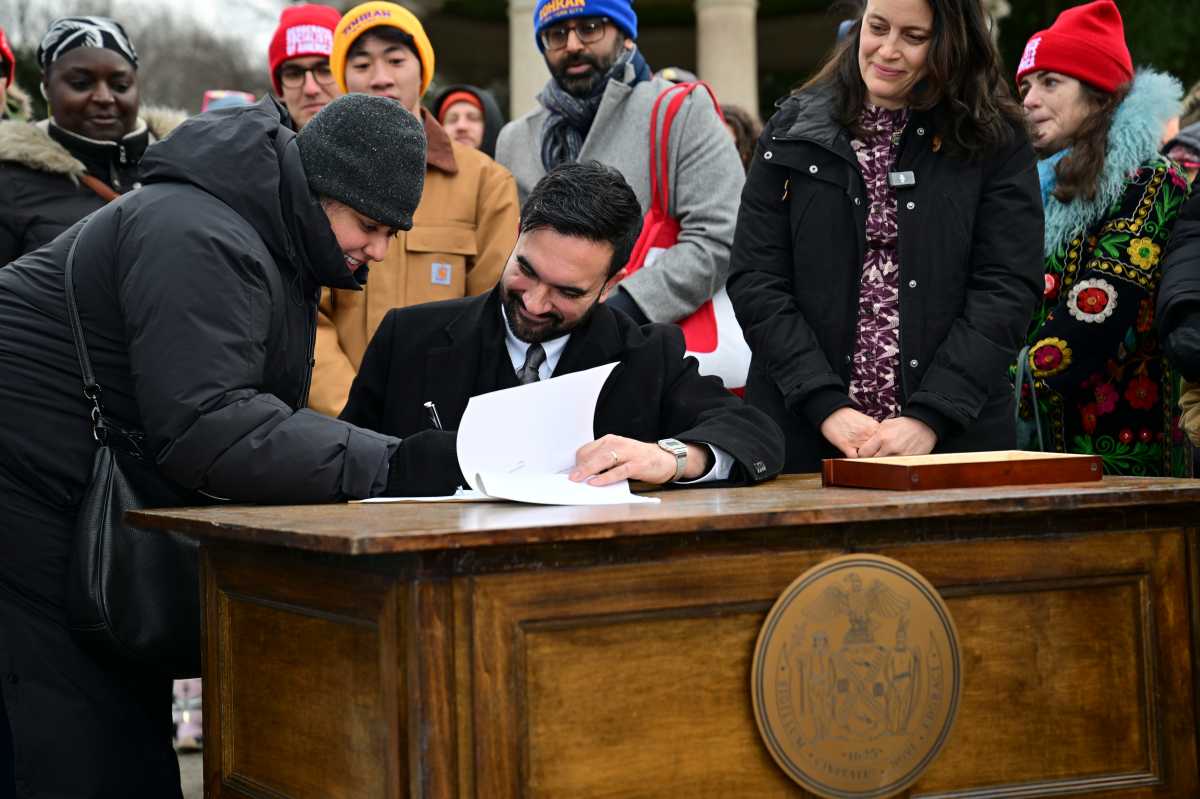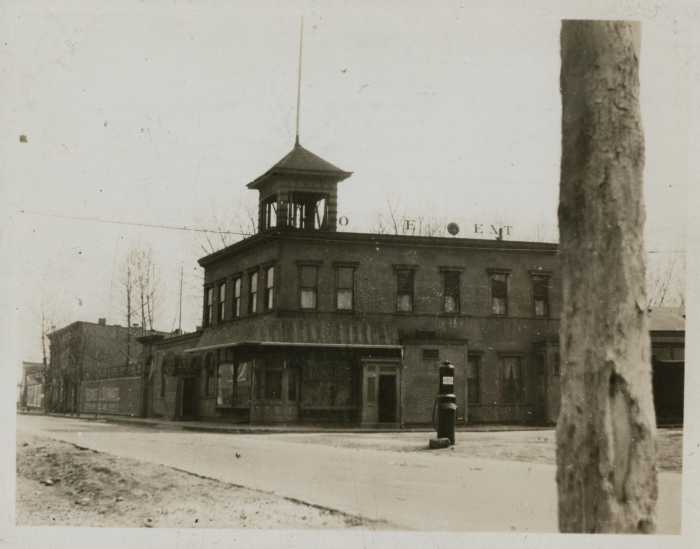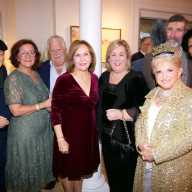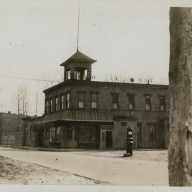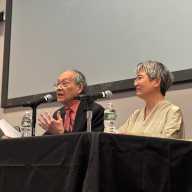By Joe Anuta
The Queens Symphony Orchestra held its inaugural, free opera performance at Queens College Sunday and demand was so strong that ushers initially had to turn away roughly a dozen angry people before the show began.
About 500 people ranging from college students to elderly opera veterans showed up to hear Giuseppe Verdi’s Italian tragedy “Rigoletto.”
“It’s great. The orchestra is excellent,” said Leona Milano, who attended the show with her husband. “You can’t understand what they’re saying, but you can just feel it.”
All of the extra people were eventually accommodated with standing room only or in extra chairs. And the entire hall sat fixated throughout the performance. The only interruptions were the intermission, bouts of applause and a lone cell phone that rang and prompted a group of scowling heads to crane around in silent admonition.
“This was a really good introduction, and we definitely plan on doing it again,” said Kate Oberjat, marketing and communications manager for the orchestra. “It went really well.”
“Rigoletto” is a good starter opera, according to Oberjat. It follows the tragic story of a hunchbacked court jester of the same name who harbors a deep-seeded hatred for his patron, the Duke of Mantua. To compound Rigoletto’s ire, his daughter falls in love with the lecherous duke. But in Shakespearean style, when Rigoletto plots fatal revenge, it all goes wrong and his daughter ends up dead while the duke lives.
The entire orchestra was on stage for the production, which took place under the looming pipe organ in the LeFrak Concert Hall, and which left little room for the performers to operate. But the lack of a set or superfluous props gave even more weight to the music and voices of the performers.
Avi Albrecht, who played the vengeful Rigoletto, wore a court jester’s hat. But the other players were smartly dressed in suits or evening gowns. As in the story, they often left scarfs or small items of clothing behind for lovers or family members to find, which gave the minimalist production ample continuity.
“You have to really think outside the box and think of the strongest message you can convey without doing to much,” Oberjat said, referring to the stage direction of David Ronis.
The actors certainly made an impression on the spartan wooden stage.
At one point, when Albrecht fell to his knees as his character belted out a passionate song, audience members in the balcony began to shout, “Bravo!”
And the ears of everyone in attendance also perked up when the duke began to sing the famous aria “La Donna e Mobile,” whose instantly recognizable melody has been performed by countless opera singers and has even made its way into mainstream culture, appearing as a symbol of opera itself in television shows like “Seinfeld” and the 1970s comedy “M*A*S*H.”
And most audience members seemed to enjoy the show even though most were likely not fluent in Italian.
“People tend to study up on the theme beforehand,” Oberjat said. “And the music is so emotionally raw that people can experience it on a visceral level. You know what they say: ‘Music is a universal language.’”
“Rigoletto” was just one of many future performances by the Queens Symphony Orchestra, according to Oberjat. Although the performance at Queens College was special, since many current students and alumni, like Albrecht, performed in the opera.
“With the changing times, we’re going to switch to an all-free format,” she said.
Free concerts attract more curious members of the community who might not otherwise pay for tickets, and Oberjat said the extra exposure will be beneficial to the symphony and the community as well.
The symphony is planning a free festival called 1,001 voices that will explore the immigrant experience in Queens.
Reach reporter Joe Anuta by e-mail at januta@cnglocal.com by phone at 718-260-4566.

